How Travis Scott's chaotic shows electrify a fervent fan base
He's known for rowdy shows, but before Astroworld none led to fatalities.
Chants of "Travis! Travis!" echoed from the stage to the farthest corners of the concert venue as anticipation continued to build.
And then mayhem -- a collective gasp and screams -- broke out as fans caught the first glimpse of Travis Scott's silhouette illuminated by spotlights and flames bursting from the stage.
The crowd swayed, and a surge of enraptured fans pushed and shoved to get a better view, to inch a little closer to the most coveted Astroworld seat: a standing-room spot at the front of the hip-hop superstar's headlining show, where the "raging" is most extreme.
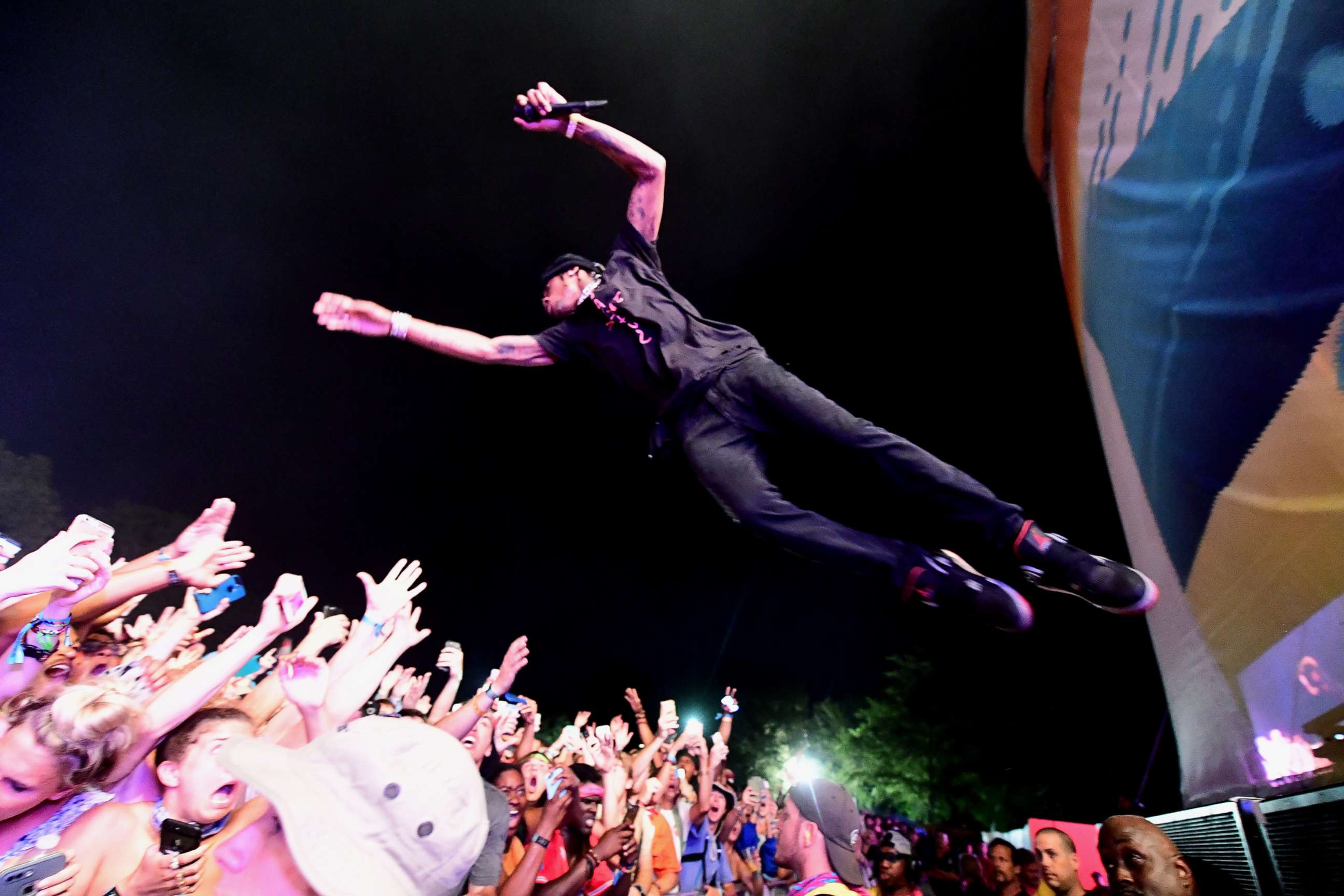
Those are scenes from "Travis Scott: Look Mom I Can Fly," a 2019 Netflix documentary that documents the rise of the electrifying hip-hop star, the chaos that defines his larger-than-life performances and his relationship with die-hard fans.
"I feel like at some points in life you have to just be extreme. And sometimes you have to take all matters to the extreme," Scott said in the documentary, reflecting on "Astroworld" -- the name of his 2018 album and music festival, before launching into the night sky aboard a rollercoaster.
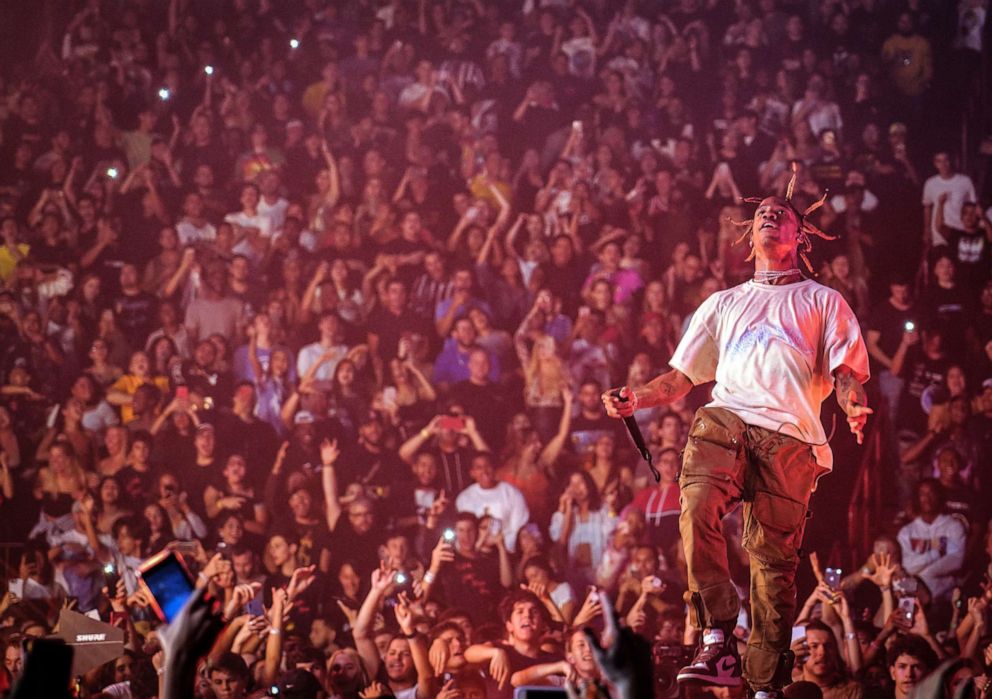
A lot of kids 'trying to get out'
On the evening of Nov. 5, about 50,000 gathered for the first night of that weekend's sold-out Astroworld music festival at NRG Stadium in Scott's hometown of Houston. At one point in the chaos, as the crowd surged forward, some concertgoers panicked and pushed in all directions and trampled others, killing at least eight and injuring hundreds.
Ashlee Young, a hip-hop radio host in Houston who's been to more than 10 Scott concerts in his hometown, attended Astroworld that Friday but told ABC News she left before he took the stage.
"I think everyone who's been to multiple Travis shows -- you know at some point how rowdy it gets," she said.
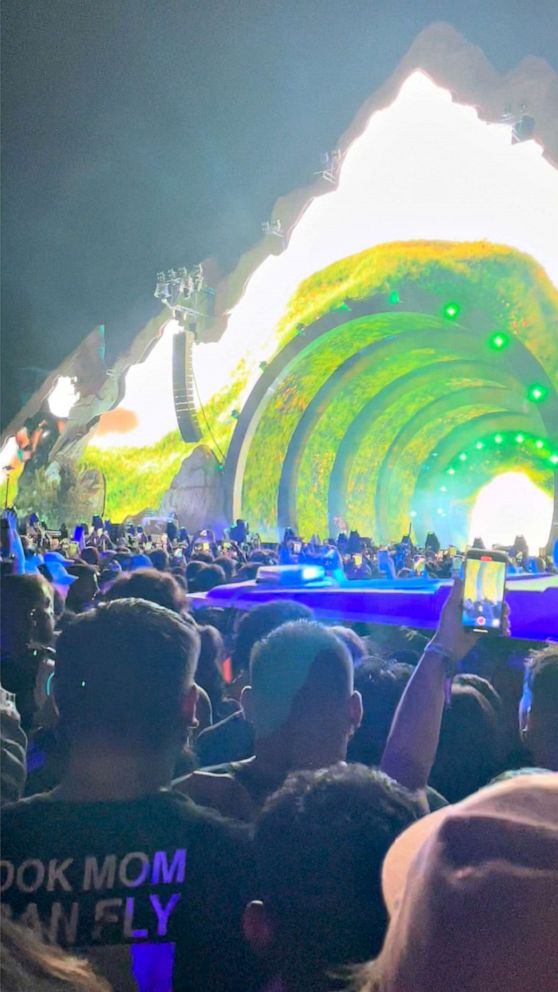
According to Houston Police and witness accounts, a wave of thousands of people surged toward the stage when Scott -- and later, Drake -- took the stage. Concert attendees said they were pushed into one another from all sides, and as the crowd pressed its way forward, some began to fall, pass out and get trampled.
"Crowd control at large concerts, in general, has long been a dread for promoters and performers," said Marc Myers, author of "Rock Concert: An Oral History as Told by the Artists, Backstage Insiders, and Fans Who Were There."
Myers told ABC News that over time security at concerts initially focused on the wellbeing of the artists, but by the 1960s, with the rise of R&B and rock and roll -- the first genres that catered specifically to youth -- "the well-being of audiences became a primary concern as well, as the numbers grew."
Myers said that "as performers became superstars and audiences became supersized," the music industry "had to invent security, it had to invent crowd control."
"As things got bigger and bigger and bigger, fears got bigger and bigger -- and so did liability."
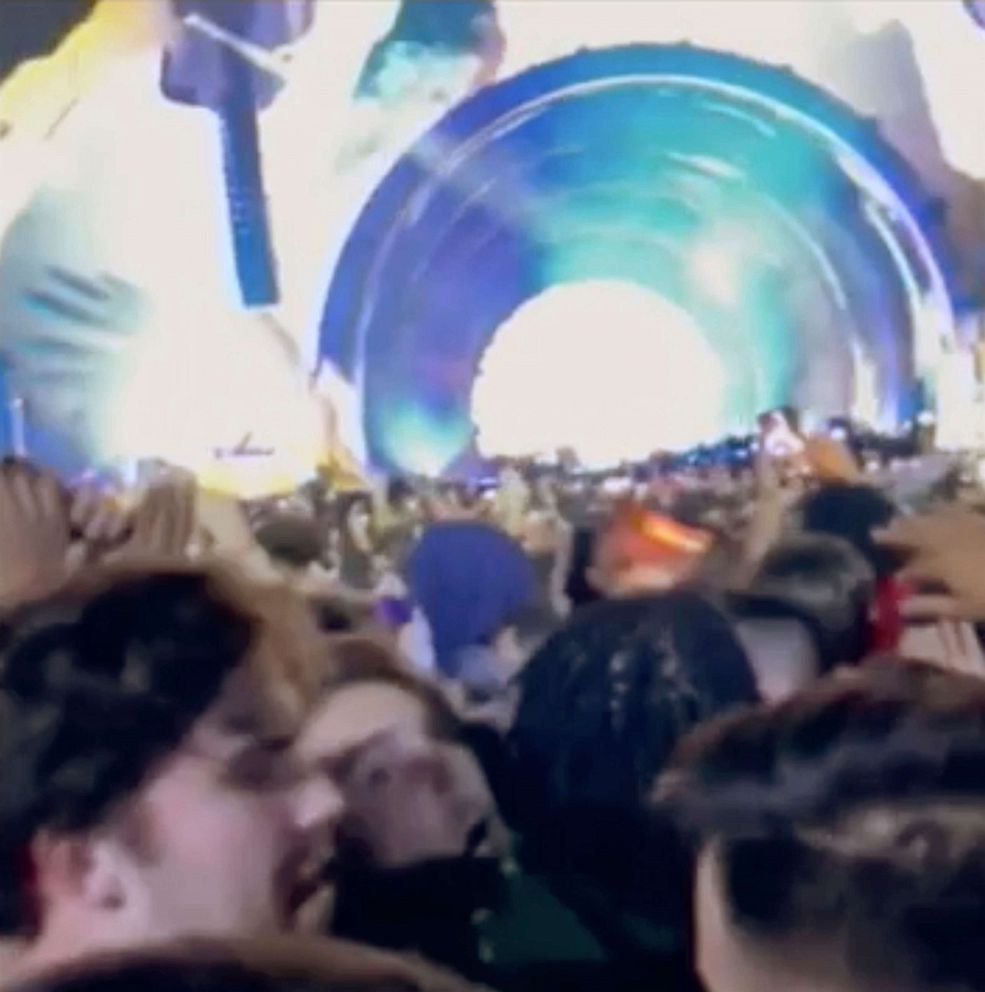
Authorities are still investigating the cause of the surge that led to fatalities at Astroworld, but the roles of the concert production and event management companies -- Live Nation Entertainment, ScoreMore Holdings and the Harris County Sports & Convention Corporation -- as well as those of the performers, Scott and Drake, have come under scrutiny, being named in several lawsuits.
Scott and event organizes are cooperating with investigators.
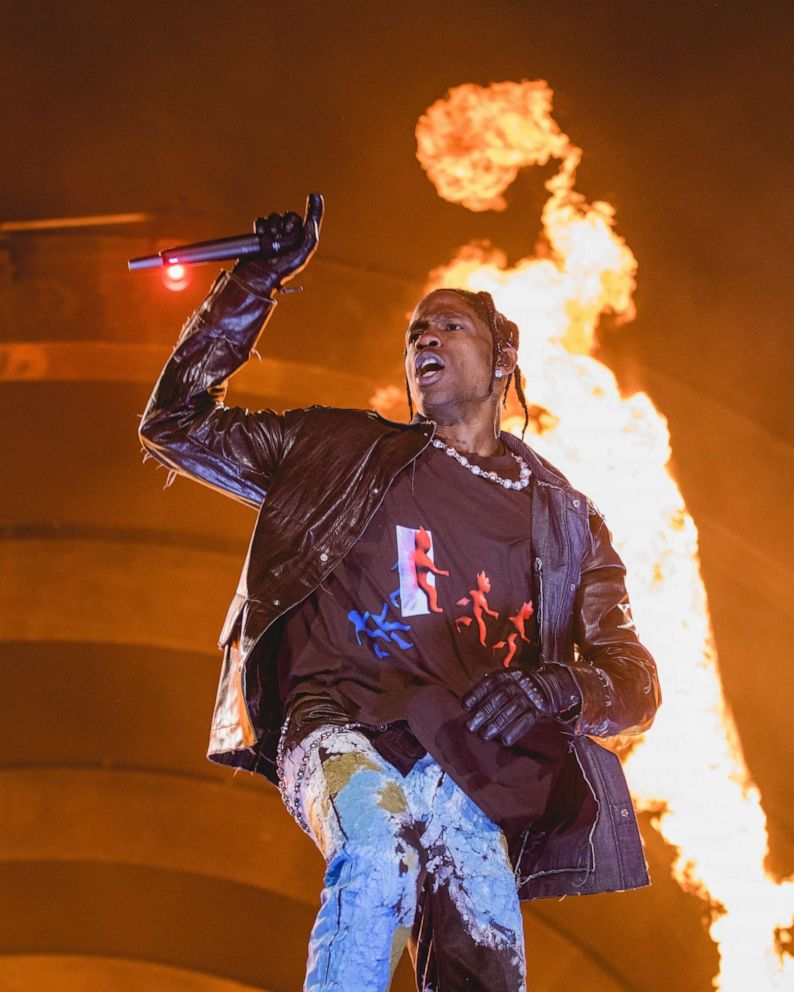
Safety was previously a concern at Scott's shows, as documented in the Netflix special.
"Kids push up against the front and spread all the way across that and fill in the whole front floor, so the pressure becomes very great up against the barricade," said a man whose face was blurred, explaining what he'd seen at a Travis Scott show. "You will see a lot of crowd surfers, in general, but also you see a lot of kids that are just trying to get out -- get to safety -- because they can't breathe."
All eight of the victims have been identified in the deadly stage surge and their ages range from 14 years-old, to 27.
The spirit of rebellion and a fervent fan base
Scott, whose legal name is Jacques Bermon Webster II, grew up in Houston. According to Young, the 30-year-old rapper is considered a "hometown hero," and young fans are not only enthralled by his "artistry" but by his "celebrity."
"These kids will do literally whatever to get his attention," she said.
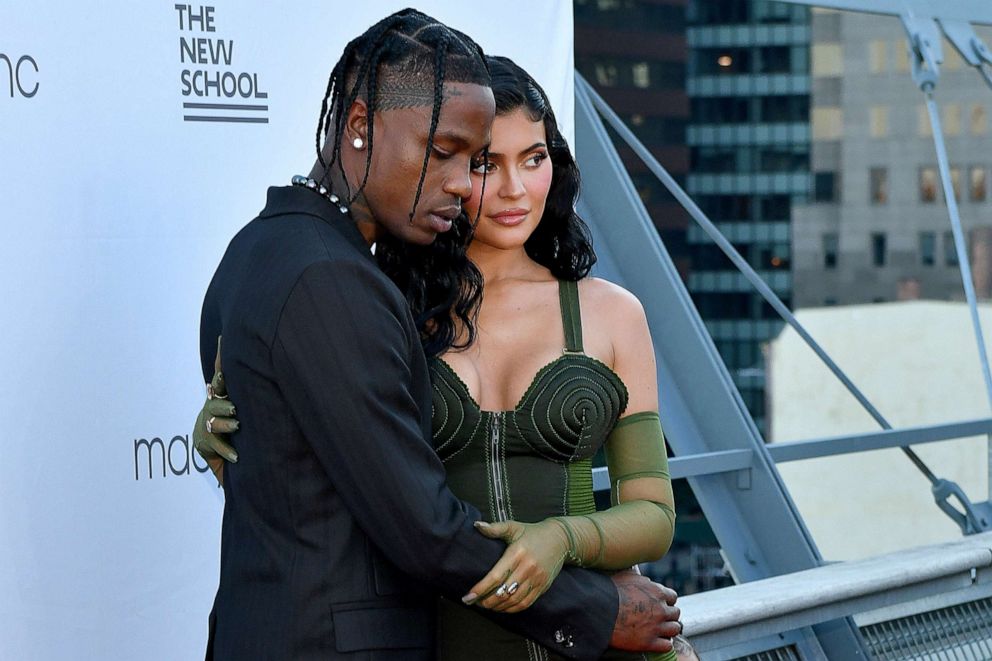
Scott, who started his hip-hop career in Houston and released his first EP on MySpace in 2008, is a protege of Kanye West, signing with Epic Records in 2012. He developed his career after moving to Los Angeles and has had four No. 1 hits on the Billboard Hot 100.
His viral hits like "Antidote" and "Sick Mode," his collaborations with artists like Drake, the success of his third studio album, "Astroworld" -- released in 2018 and certified triple platinum -- in addition to his relationship with social media icon Kylie Jenner -- the mother of his daughter, Stormi Webster -- has cemented his status as a hip-hop icon and an A-list celebrity.
According to Young, Scott's "rebel image" is part of his appeal, and his fans "feed off his energy" and "want to act crazier just to get his attention."
"He is completely there [to] make people do things outside of themselves," she said, saying it's not uncommon for concertgoers to pass out during shows and require ambulances.
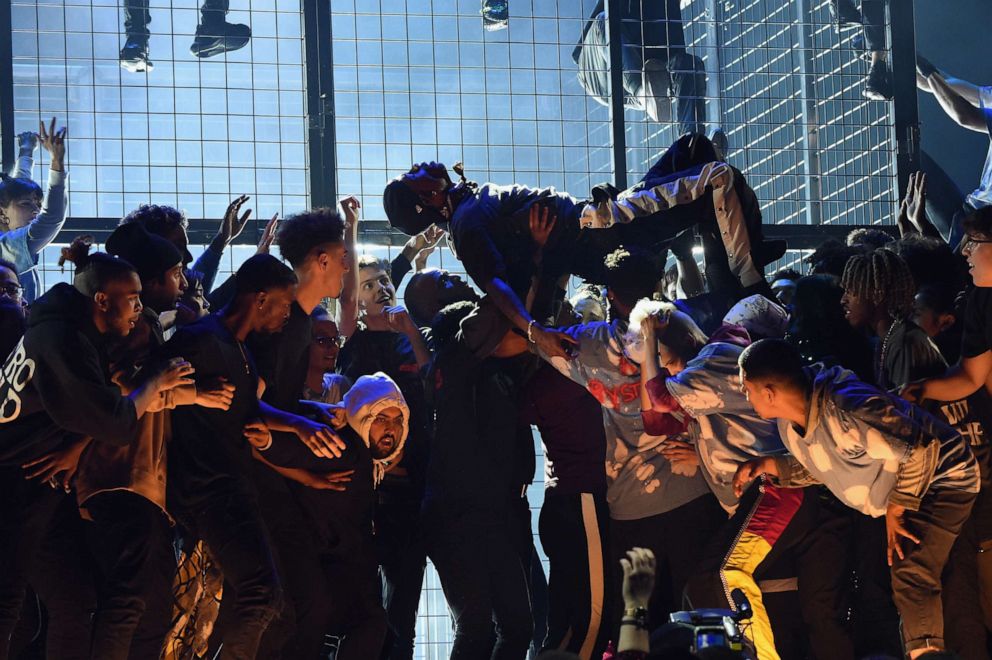
Scott is known for encouraging risky behavior, raging with his fans and even letting some join him on stage -- and this is part of why they love him, a sentiment captured through various interviews in the Netflix documentary.
"I don't even know how to -- words can't describe how I feel ... s---, I'm half dead," said a fan after one of Scott's shows.
"I survived, I survived, it's all good," said another who appears to be injured, sitting near his crutches.
"I thought I was going to die in your f---ing show," another said.
Elements of rock and roll
During his performances Scott often encourages his fans to "rage," which according to Young means "make as much movement as possible" through actions like moshing and crowd surfing, which are common at his shows but are not traditionally a part of the hip-hop genre.
Young, who first saw Scott perform in 2014, before he blew up on the national scene, said that after building his superstar status in Los Angeles and returning to perform in Houston "you could tell he catered more to like the punk rock, [alternative] scene" than to "the urban community."
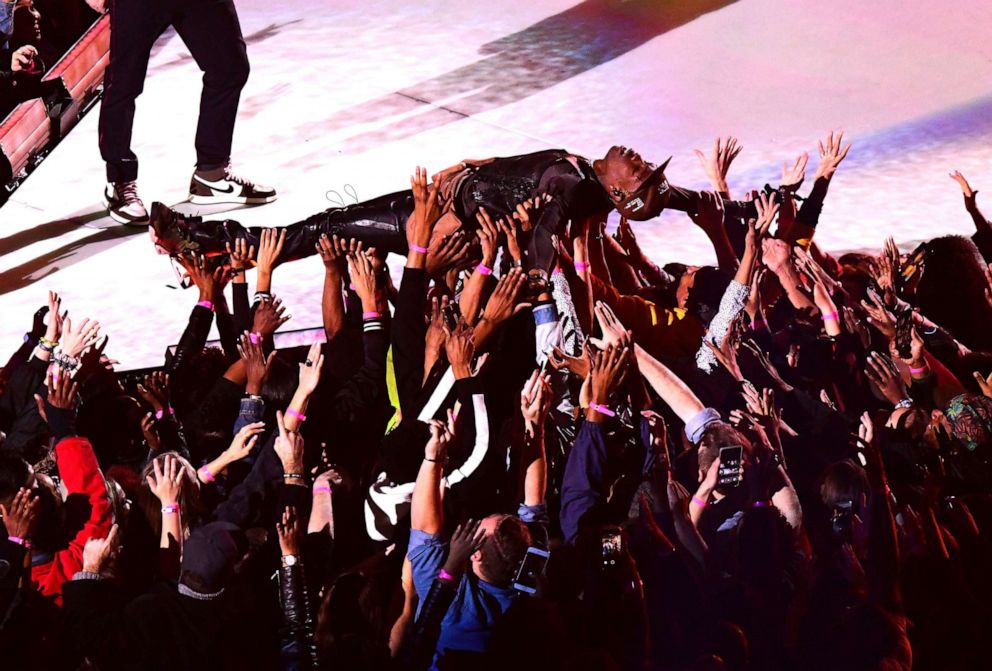
"You don't really see moshing at rap shows," she said, adding that southern hip-hop, especially in Texas, is generally "very melodic, it's very slow, it's very low tempo," whereas Scott incorporates elements of rock and roll into his shows. "The 'SoundCloud era,' which is Gen Z, they kind of don't have the same lines of genre differentiation that we do. They kind of merge everything together."
According to Myers, the "phenomenon" of moshing and crowd-surfing dates back to the late 1970s and early 1980s.
"Many of the promoters ... didn't really have a problem with it at first because they felt that it was giving people -- young people -- an opportunity and outlet to express themselves," Myers said. "But they knew that what they were trying to mitigate against was unintentional injury ... what they feared most was this sort of kinetic domino effect of the audience."
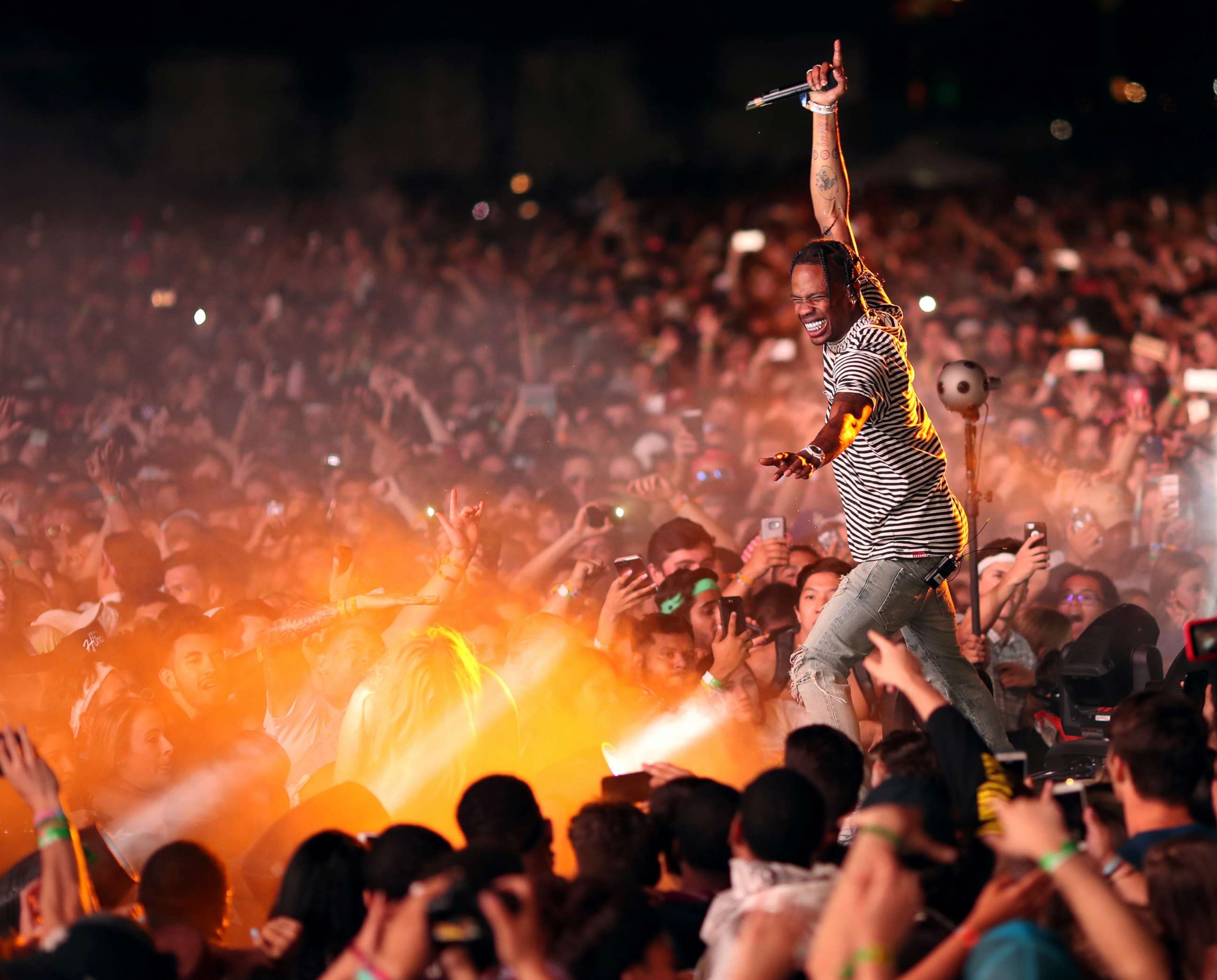
Scott was criticized by some Astroworld attendees for not stopping Friday's show after spotting an ambulance among concertgoers. Videos from the event show some fans crying out for help and pleading with the rapper to stop the show.
The rapper, who has vowed to cover the funeral costs of the Astroworld victims, said in videos posted on Instagram Saturday that he tried to spot people in the crowd having physical problems and paused during the show to try to get help to his fans.
"I could just never imagine the severity of the situation," he said in one of the videos.
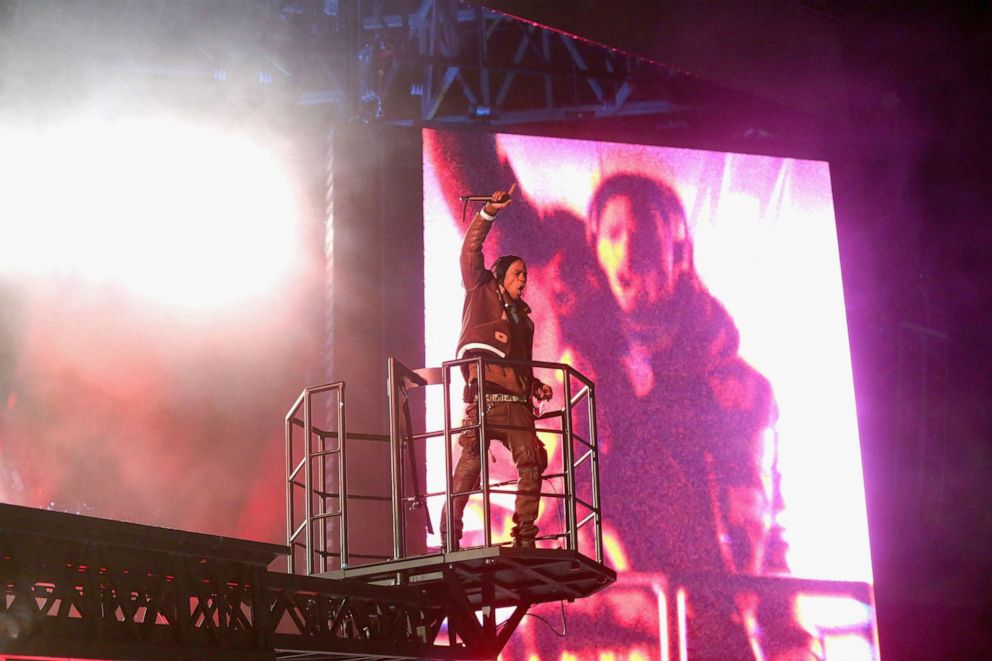
Scott was arrested in 2017 after a concert in Arkansas at which he encouraged fans to bypass security and rush the stage, leading to several injuries but no deaths. He was charged with several misdemeanors and pleaded guilty to disorderly conduct, and paid a fine. This incident was documented in the Netflix special.
"Because he has done so many festivals and shows before, I don't think anybody could have imagined this happening," Young said. "I think he really does care about everyone's experience, but I don't think anything that severe has ever happened."
ABC News' Kiara Alfonseca contributed to this report.




